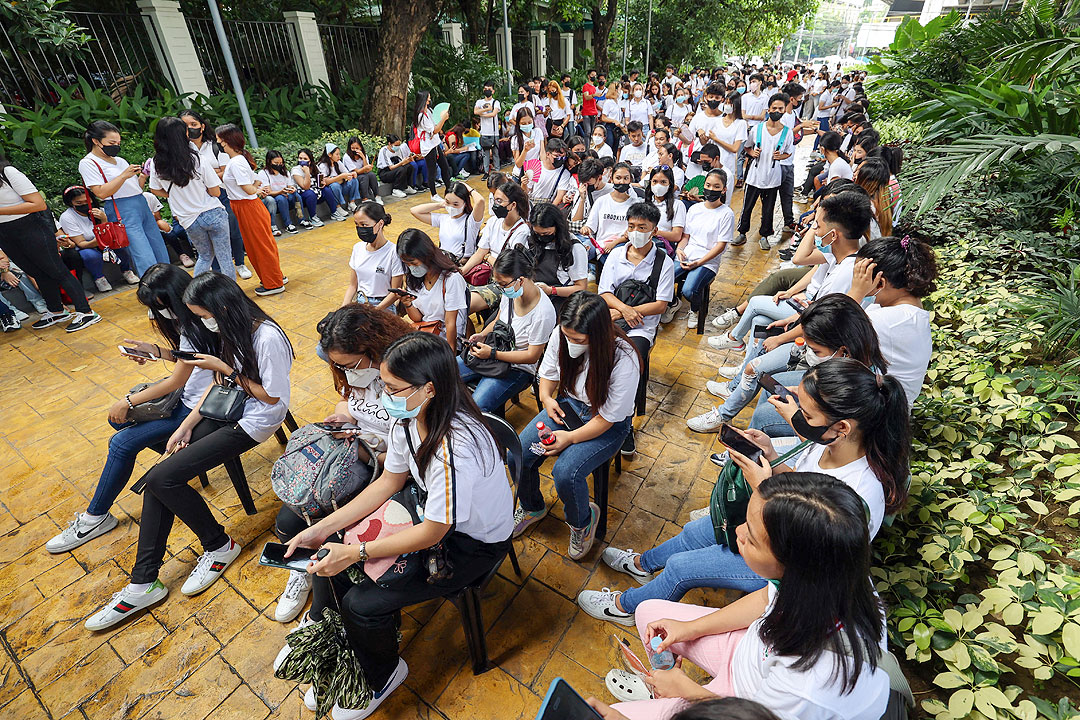PHL can’t afford free college tuition; Resources best focused on Basic Ed

By Luisa Maria Jacinta C. Jocson, Reporter
THE GOVERNMENT cannot afford to expand the free tuition program for university students due to limited fiscal space and should instead focus on supporting basic education, an analyst said.
“I do not agree with expanding universal access to quality tertiary education. Where are we going to get the budget? We cannot afford to borrow more,” Maria Ella Calaor-Oplas, an economics professor who specializes in human capital development research at De La Salle University said.
“If there is something that needs attention, it is the quality of our primary and secondary education,” she added.
Finance Secretary Ralph G. Recto has said he supports the possible expansion of Republic Act No. 10931 or the Universal Access to Quality Tertiary Education Act of 2017. The program offers tuition-free state-university education for eligible students.
Former Finance Secretary Benjamin E. Diokno, during his time in office, called the program fiscally unsustainable and also recommended supporting enhancements to basic education instead.
“In a way, I agree with (Mr. Diokno). Expanding the Universal Access to Quality Tertiary Education Act is not sustainable. Without new taxes, where will the government get the funds to finance that?” Ms. Calaor-Oplas said.
The government must take into account the debt situation, revenue collection performance and the quality of the education system, she said.
The Treasury reported that the National Government’s outstanding debt hit a record P14.62 trillion at the end of 2023, up 8.92%.
This brought the debt-to-gross domestic product (GDP) ratio to 60.2% at the end of 2023. The ratio was lower than 60.9% at the end of 2022 but still above the 60% threshold considered by multilateral lenders to be manageable for developing economies.
Ms. Calaor-Oplas noted the lack of coverage for public primary and secondary education. “There is still a lot to cover; a lot of far-flung areas in the country where children need to walk for at least two hours not because there is traffic but because schools are very far.”
“If we do not review and improve our primary and secondary education, this will be the quality of students that we will have at the tertiary level,” she added.
She also called on the review of State Universities and Colleges (SUCs). “A lot of our SUCs are offering courses that are outdated, with no demand, while the quality of teaching and facilities is questionable,” she added.
On the other hand, Ibon Foundation Executive Director Sonny A. Africa said that expanding the program should be a priority of the government.
“Enlarging and multiplying quality public institutions of higher education that are accessible to all students is critical for the country’s social, economic and political future,” he said in a Viber message.
“This is not an investment whose returns should ever be reduced to affordability according to perceived fiscal space,” he added.
Mr. Africa noted that the Finance department’s support is “extremely important” but education agencies must be at the forefront of this proposal.
“In principle, the Commission on Higher Education (CHED) is more appropriate because its mandate is specifically on higher education including not just its affordability and accessibility but also its relevance to broader national development.”
Education takes up the largest allocation of the national budget. This year’s P5.768-trillion spending program sets aside P924.7 billion for the education sector.



